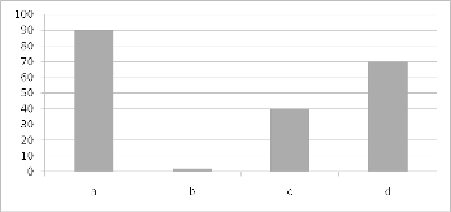Agriculture Reference
In-Depth Information
found that low temperature during very early and peak
microspore development caused a severe reduction of total
pollen production.
The development of male reproductive organs in rice is
very sensitive to various environmental stresses. For example,
exposing plants to low temperatures during the heading
stage leads to a reduction in gram yield. It was found that rice
grown under normal conditions and also at three different
temperatures 16, 18 and 20ºC signifi cantly decreased pollen
viability and grain production. Cytological observations of
the anther showed that the tapeum was the most sensitive
to low temperature stress, resulting in male sterility due to
functional loss of the tissue. Electron microscopy suggested that
this abnormality was restricted primarily to the endosplasmic
reticulum (ER), a highly vulnerable sub-cellular organelle,
showed two typical morphological aberrations, one can use it
as a pattern of arrangement, the other in the formation of ER
bodies, the most severe abnormalities were noted in tapetal
cells exposed to 16ºC (Fig. 27).
a - 26/20, b -16, c- 18, d-20
Temperature (
0
C)
Fig. 27
Some seed formation changes by cold stress on rice at heading.



